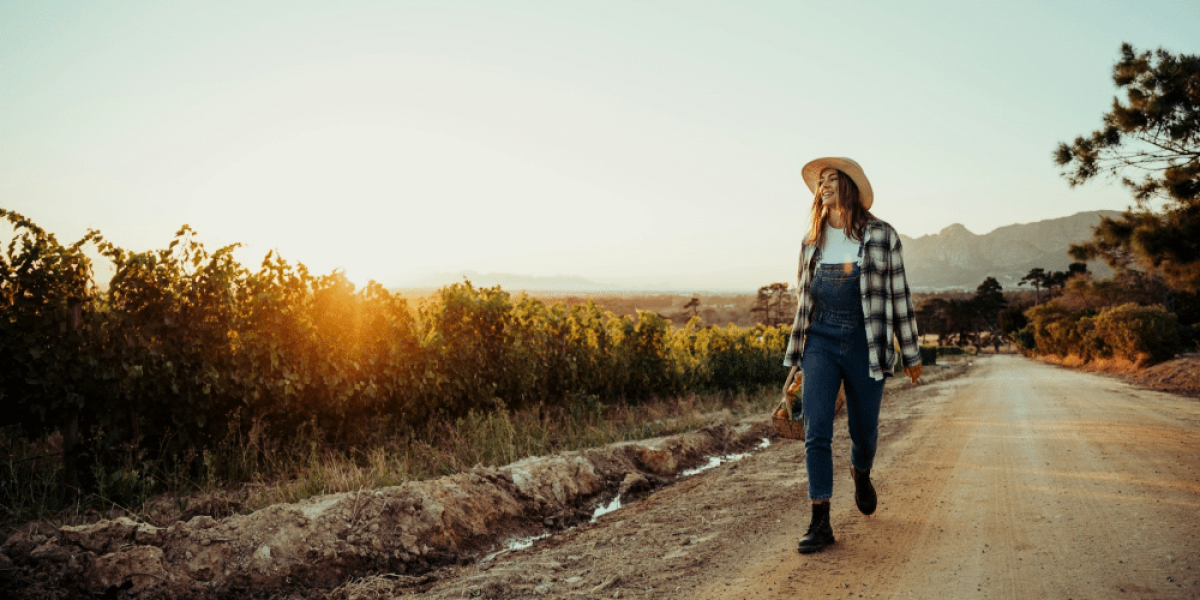The American South unfolds like a patchwork quilt, each square woven with a rich history tied to the land. From fertile fields bursting with cotton to sun-drenched orchards overflowing with peaches, agriculture has been the lifeblood of the region for generations. Farmers’ markets, a kaleidoscope of color and sound, brim with seasonal bounty, a testament to the deep connection between Southern communities and the food they put on their tables.
But beneath the warm Southern sun, change is stirring. Sustainable practices are taking root, a shift towards nourishing both the land and the people who depend on it. Agritourism, a unique blend of education and experience, is blossoming, offering city dwellers a glimpse into the heart of farm life. However, a new challenge looms large on the horizon – climate change. Unpredictable weather patterns and extreme weather events threaten the very foundation of Southern agriculture.
So, as we face these evolving realities, a crucial question arises: how will Southern agriculture adapt and thrive in the coming years? Let’s delve deeper into this fascinating story. We’ll explore the innovative practices that are paving the way for a more sustainable future, discover the charm and potential of agritourism, and grapple with the challenges posed by a changing climate. Join us on this journey as we explore the exciting – and sometimes challenging – future of farming in the South.
Cultivating Sustainability: Eco-Friendly Farming Takes Root
Imagine a farm that nourishes not just the body but also the environment. This is the vision behind sustainable agriculture, a movement gaining traction across the South. Sustainable practices aim to minimize environmental impact while ensuring long-term productivity. A report by the Southern Sustainable Agriculture Research and Education Program (SSAREP) highlights the growing interest, stating that “the number of certified organic farms in the South has more than tripled since the early 1990s.”
So, what does sustainable farming look like in practice? One key strategy is cover cropping. Planting cover crops like clover or ryegrass between cash crops helps suppress weeds, improve soil health, and prevent erosion. Another technique is integrated pest management (IPM), which uses natural methods like beneficial insects and plant-derived sprays to control pests instead of relying heavily on chemical pesticides.
Sustainable agriculture isn’t just good for the environment – it can also be good for business. Consumers are increasingly seeking out food grown with sustainable practices, and farmers can tap into this growing market. Additionally, sustainable practices can lead to cost savings in the long run, such as reduced reliance on expensive fertilizers and pesticides.
From Fields to Farm Stays: The Rise of Agritourism
Ever dreamed of escaping the city and getting your hands dirty on a real farm? Well, agritourism is making that dream a reality for more and more people. Agritourism refers to any tourism activity that takes place on a working farm. This could include anything from farm stays and educational tours to pick-your-own produce experiences and on-site farm-to-table restaurants.
The rise of agritourism in the South is driven by several factors. People are increasingly interested in where their food comes from and how it’s grown. They crave authentic experiences and a connection to the land. Agritourism offers a unique opportunity to learn about agriculture, enjoy the beauty of the countryside, and connect with local farmers.
For Southern farmers, agritourism can be a valuable source of income diversification. It allows them to tap into a new market and create additional revenue streams. Additionally, agritourism can help build stronger relationships with consumers and foster a deeper appreciation for the challenges and rewards of farming.
But agritourism isn’t without its challenges. Farmers need to consider things like liability insurance, marketing, and developing a welcoming atmosphere for visitors. However, with careful planning and execution, agritourism can be a win-win for both farmers and tourists, creating a vibrant and sustainable future for Southern agriculture.







